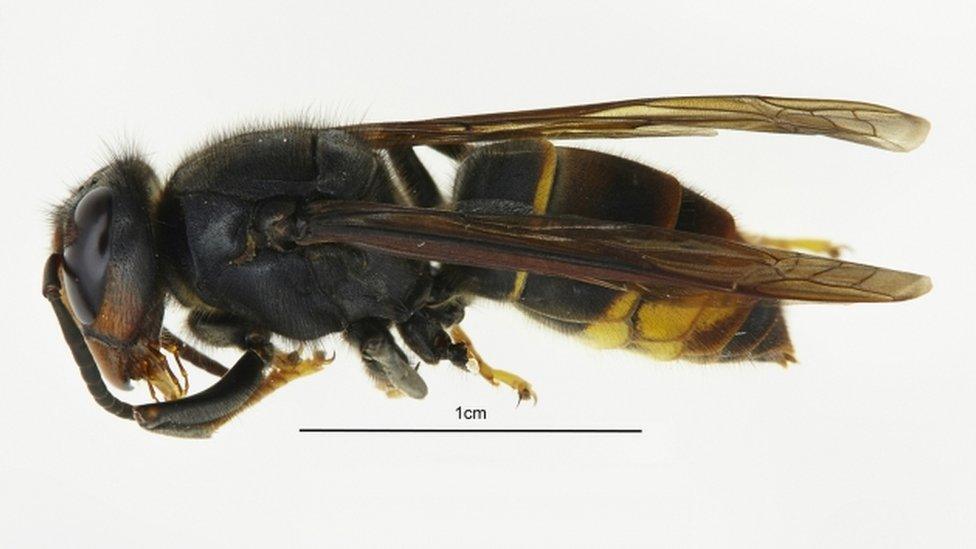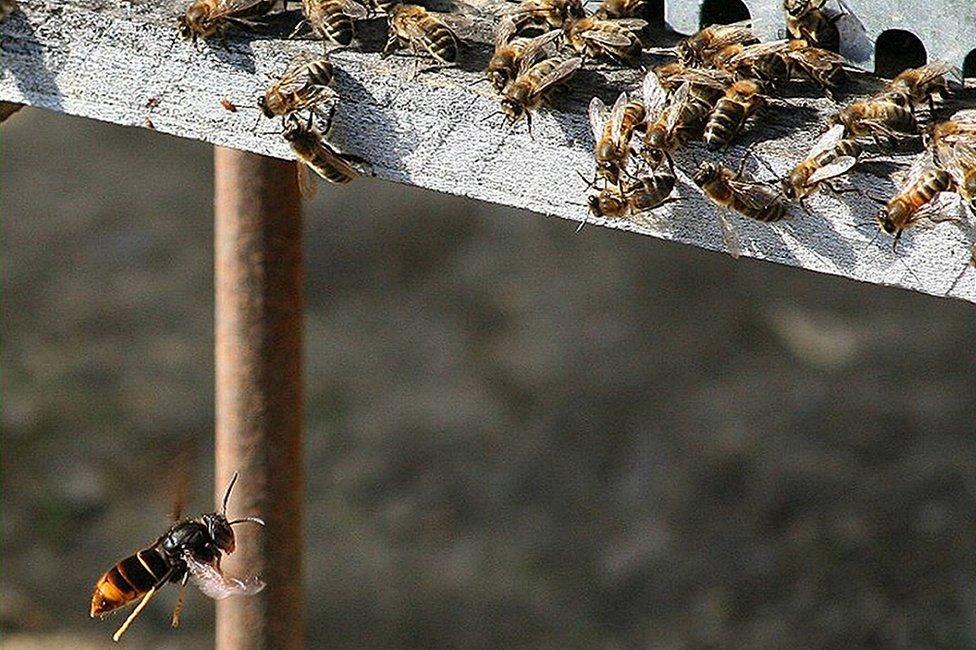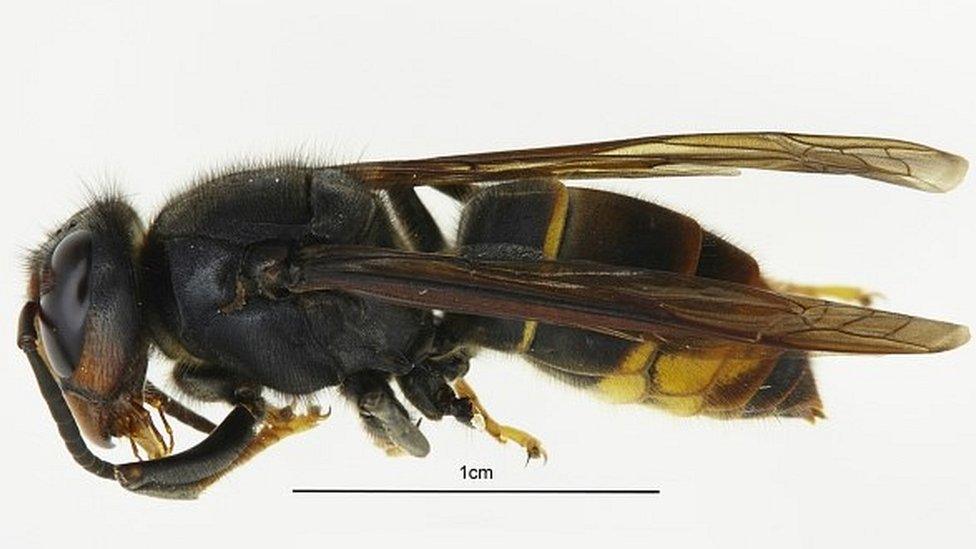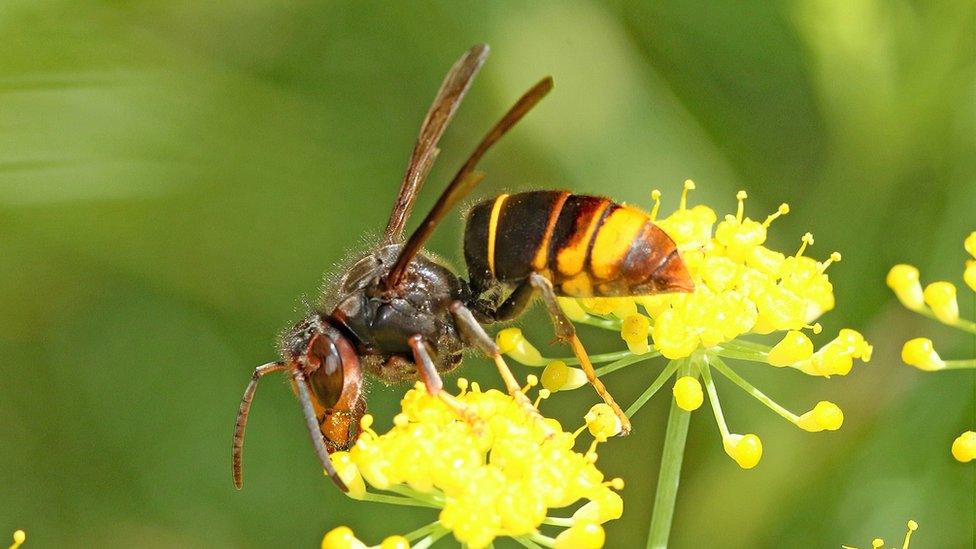Asian hornet spotted in Bury cauliflower prompts alert
- Published

The Asian hornet could damage struggling bee populations
An Asian hornet has been seen in Greater Manchester, prompting efforts to control any spread of the predatory species, the government has said.
The insect does not pose a greater threat to human health than a bee but could "cause damage" to honey bee colonies, officials said.
It was seen in a cauliflower in Bury, which has been traced to Lincolnshire.
Asian hornets arrived in France in 2004 and were first spotted in the British Isles in 2016.
The sighting in Bury is the first confirmed one in the UK since 2017, when a nest was discovered in Devon and destroyed.

What are Asian hornets?

Asian hornets feed by hovering in front of bee hives
They intercept returning honey bees, bite their heads off and then eat the rest - a behaviour called "hawking"
Exact figures are hard to come by but there are estimates that a single hornet can eat 50 bees in a day
Its arrival could be a problem for struggling bee populations in the UK
Nicola Spence, from the Department for Environment, Food and Rural Affairs, said: "While the Asian Hornet poses no greater risk to human health than a bee, we recognise the damage they can cause to honey bee colonies."
She said they were taking "taking swift and robust action to locate and investigate any nests in the Bury and Boston areas, to eradicate them and control any potential spread".
Smaller than the UK's native hornet, the Asian hornet's abdomen is almost entirely dark while the European hornet's abdomen is largely yellow.
People who think they have seen an Asian hornet have been asked to report it on the Asian Hornet Watch app or by emailing alertnonnative@ceh.ac.uk.
- Published26 September 2017

- Published25 August 2017
- Published4 October 2016

- Published17 August 2016
